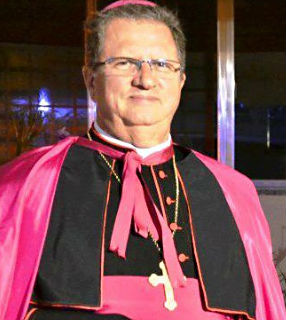
Some people were surprised when in the General Audience for May 29th, Pope Francis declared that he was a sinner: The Church is a great family of children of God. Without doubt, she also has human aspects; in those that compose her, pastors and faithful, have defects, imperfections and sins; even the Pope has them, and they have many, but it is good to know that when we give account that we are sinners, we encounter the mercy of God who pardons always.”
Pope Francis wants to teach us humility, that begins with the confession that we are sinners. He is the vicar of Jesus Christ on the earth. Jesus, being God, took on Himself our sins:
“He that did not commit sin, God makes Himself sin for us, in order that in Him we may become the justice of God (2 Cor 5:21). Jesus, innocent and pure, who passed for the sinner. Still he joined himself to the people to receive the baptism of penance giving by John in the Jordan River. We, in reverse, being sinners want to pass for saints. And we remain indignant when we are treated as sinners! “If we say that we have not sinned, we are cheating ourselves, and the truth is not in us.” (1John 1:8)
Therefore, the Church, wise mother in her sacred liturgy, teaches us to always be humble: “I sinner, confess…because I sinned many times…through my fault, my fault, my great fault”; with many petitions for the forgiveness and mercy of God: “Do not look at our sins, but the faith that animates your Church.”
Subliminarmente, o Papa também quer combater o carreirismo na própria Igreja, o gosto de aparecer, o desejo de nos substituirmos a Jesus Cristo, o querer, na Liturgia, por exemplo, se suplantar ao próprio Cristo, fazendo-nos os protagonistas da ação sagrada.
Subliminally, the Pope also wants to combat careerism in the Church itself, the liking appearances, the desire of substituting ourselves for Jesus Christ, the wanting, in the Liturgy, for example, to supplant ourselves for Christ Himself, making us the protagonists of the sacred action.
“Be my disciples, because I am meak and humble of heart and I will give you rest.” (Mt 11:29) Humility is a fount of peace, of fraternity and union. It is the opposite to hypocrisy. And to be humble, it is necessary to be strong, courageous and valiant. It is the Jesuit theme. . .: “Accusing oneself implies an uncommon bravery to open the door to unknownthings and to allow that others may see beyond my appearance. It is to renounce makeup, in order to manifest the truth. In the foundation of accusing myself that is a medium, is the fundamental option for anti-individualism, for the spirit of family and of the Church drives us to to assume ourselves as good sons and good daughter, for much later we can come to be good parents. Accusing oneself implies a basically communitarian posture…” And as he spoke in the latest audience, recognizing ourselves as sinners attracts the forgiveness of God: “Whomever accuses himself opens space to the mercy of God; it is like the publican who dares to raise his eyes (cf Lc 18:13) Whomever knows to accuse himself is the man that always draws near to the good of others as the good samaritan, and, in this drawing near, Christ Himself will access the brother. (Jorge Mario Bergoglio, S.J. One the accusations of himself.)
Canção Nova News.
Translated from Portuguese

